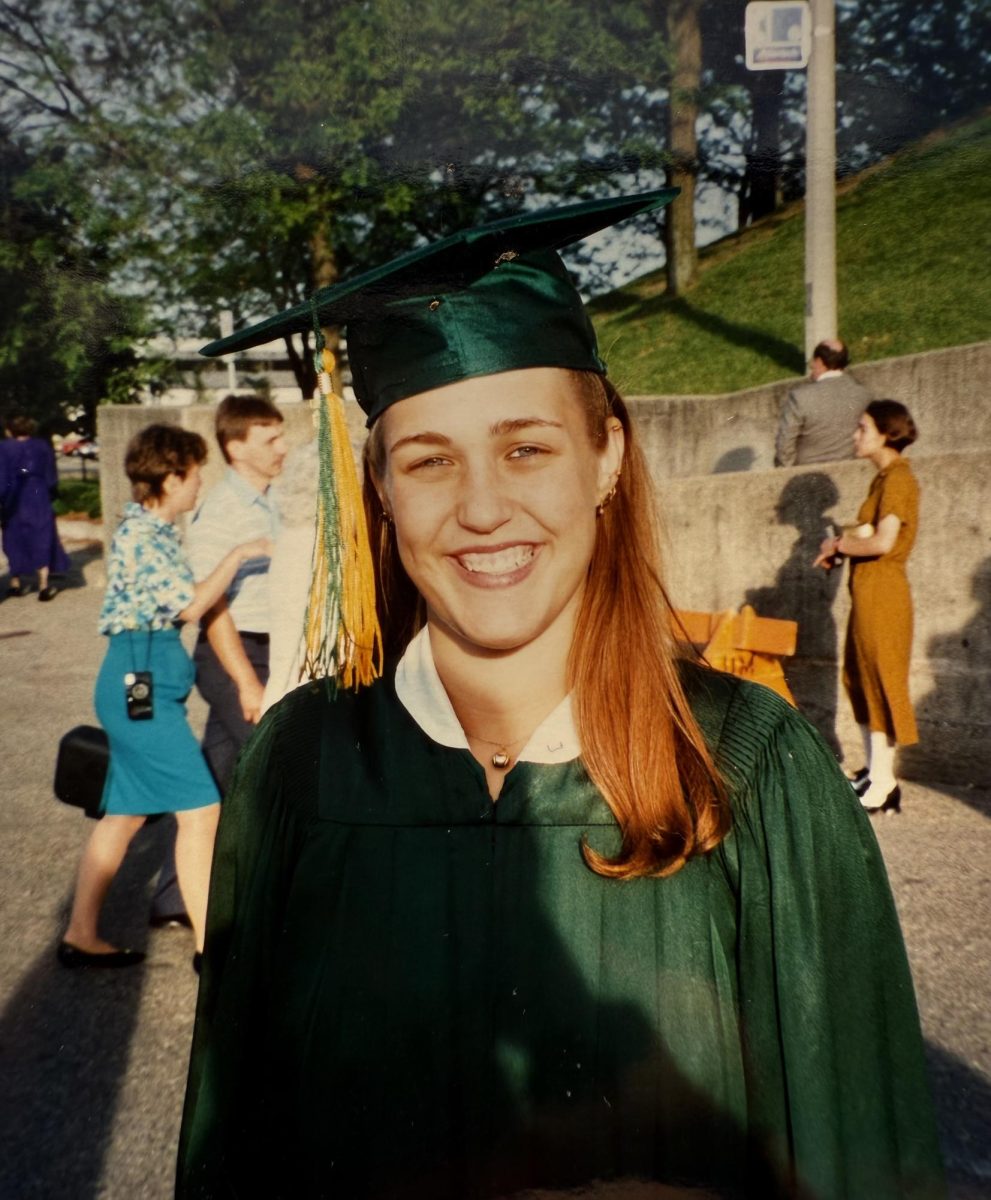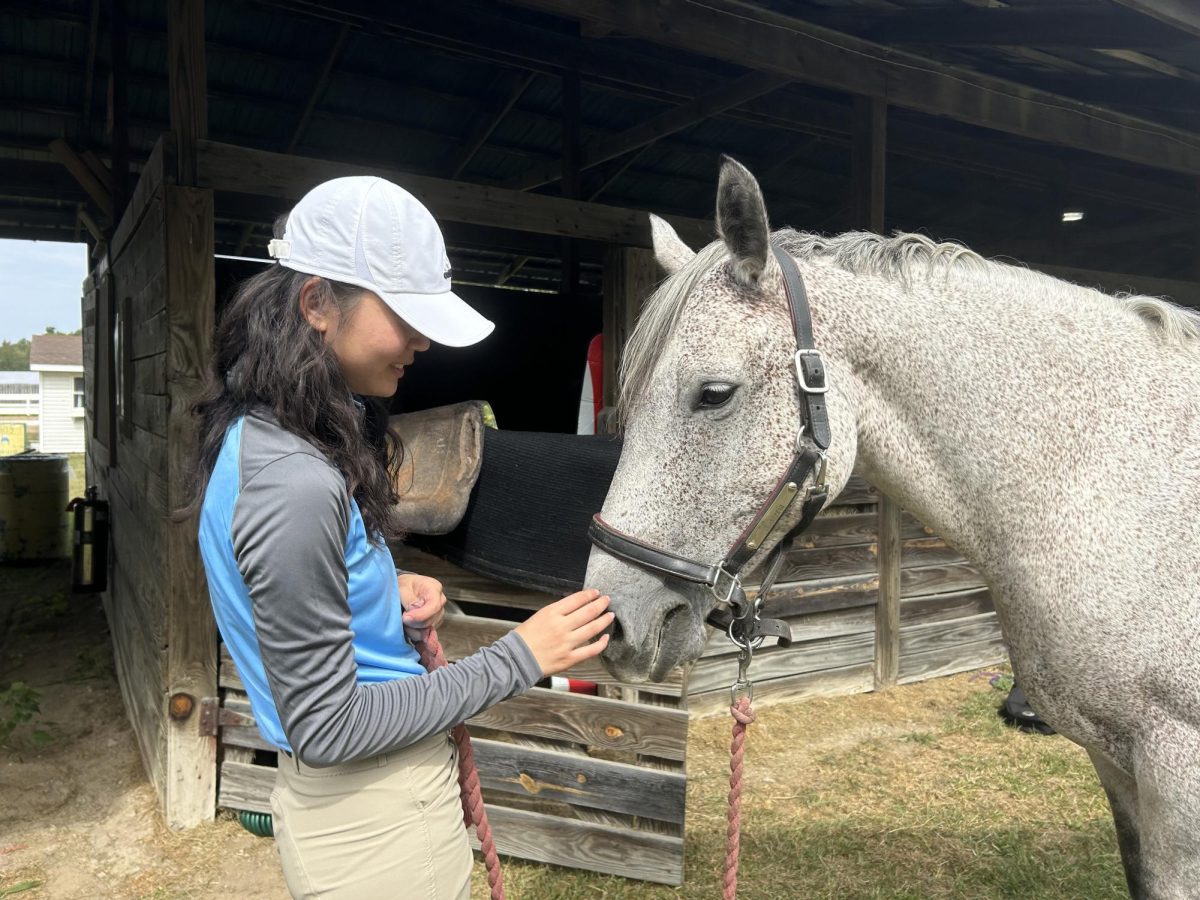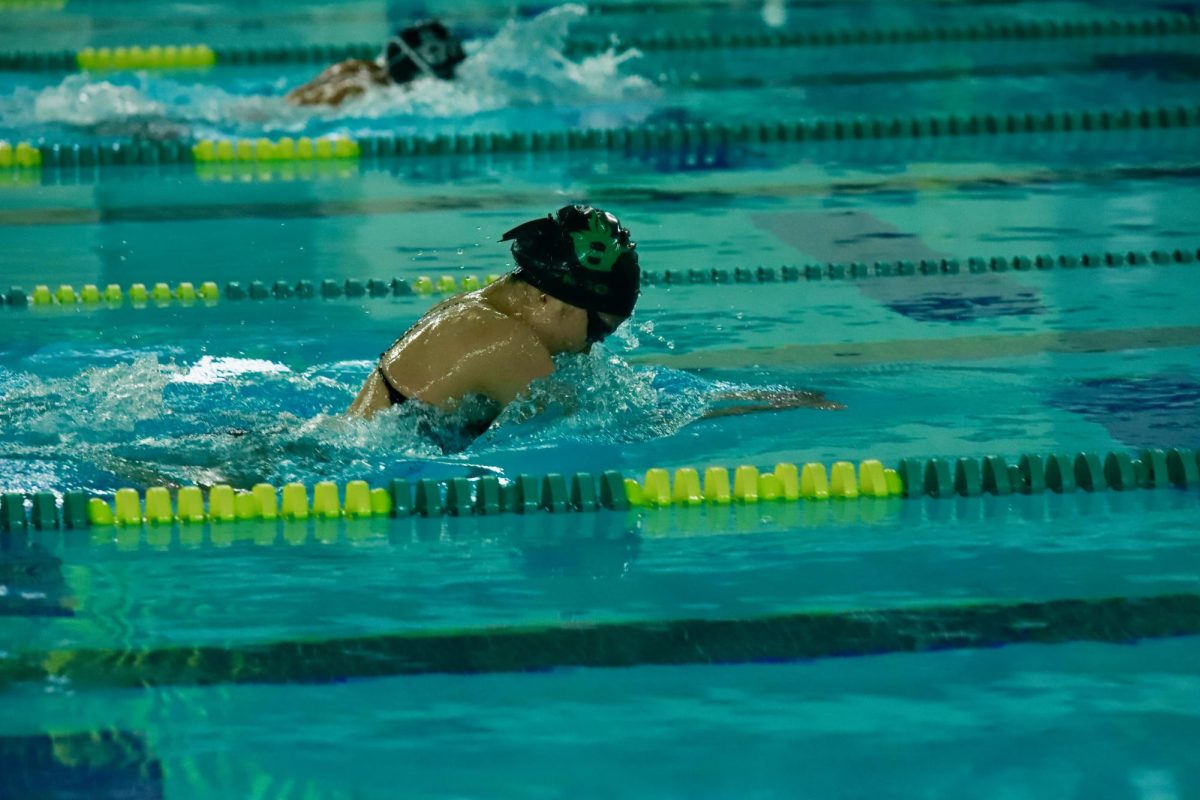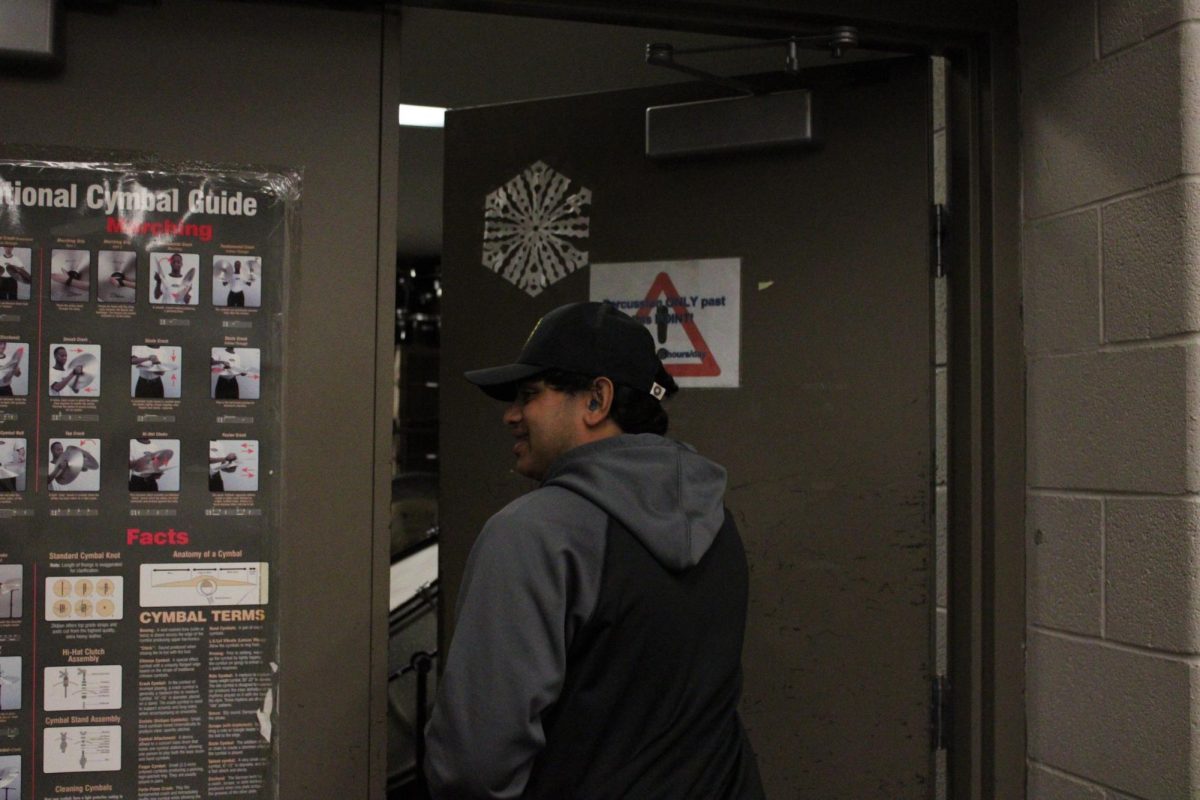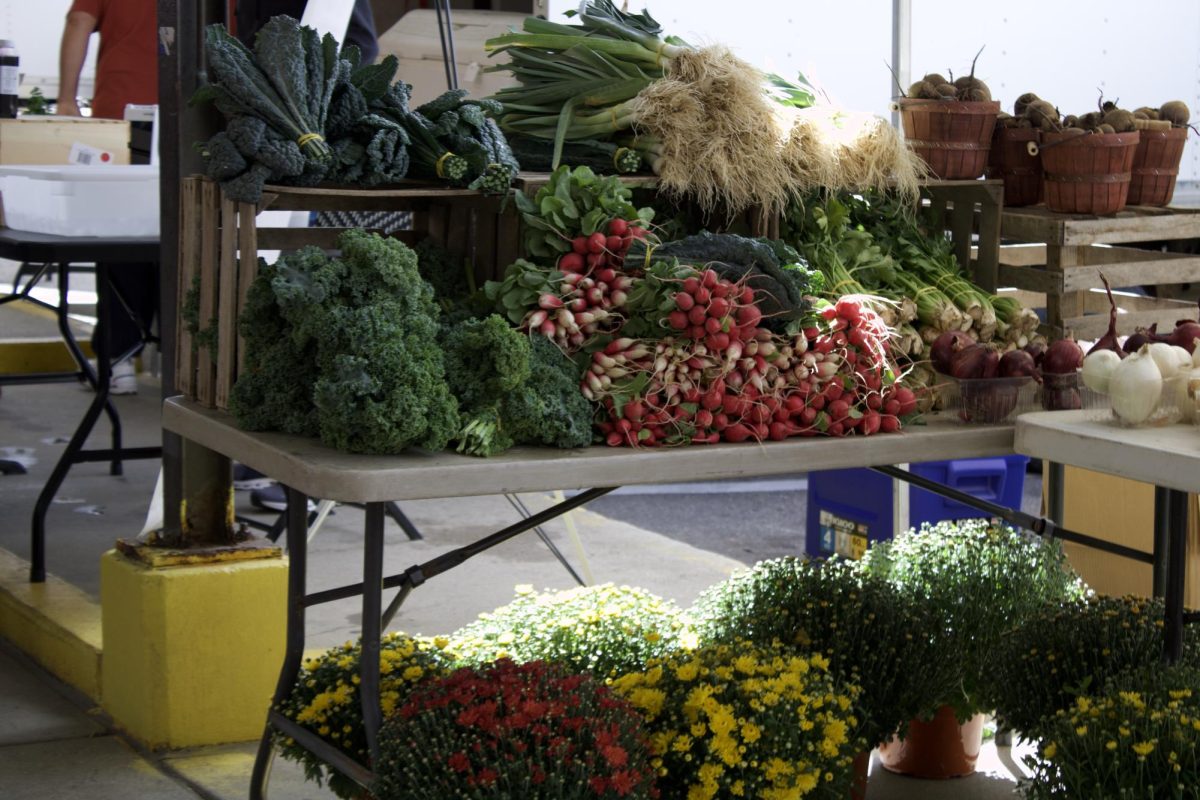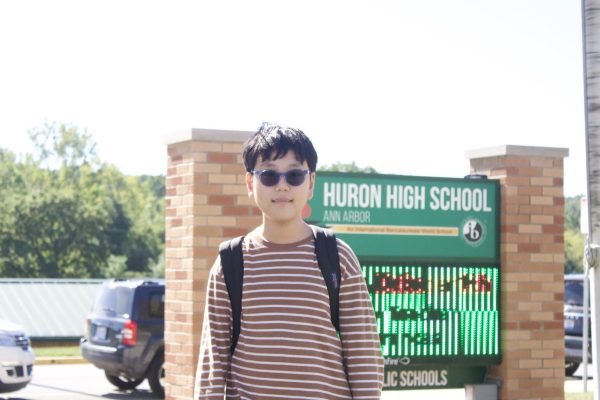For ninth grade English teacher Daniel Crowley, teaching has never been limited to one classroom or one city. From the back streets of Denver to the lively streets of Madrid and back to Ann Arbor, Crowley’s journey has been shaped by discovery, loss and a deep belief in the power of education.
Crowley was born and raised in Ann Arbor, and attended Ann Arbor Public Schools. He attended Abbot for elementary, Forsythe for middle school and Pioneer for high school. He especially loved his experience at Abbot Elementary School, since he felt that “[his] natural curiosity was celebrated and encouraged.”
While some teachers inspired him to challenge himself and pushed him to do what he thought was impossible, a few teachers encouraged Crowley to drop out of school, since they thought learning wasn’t for him. But Crowley didn’t let them discourage him.
“Our Forsythe librarian, Noel Winkler, and my eighth grade English teacher Jen Walsh helped inspire me as a reader and writer,” Crowley said.
Moreover, Crowley had great teachers at Pioneer, of whom became Crowley’s “lifehouse.” These teachers and the lessons they taught helped Crowley develop a passion for one particular subject: reading.
”[Reading] was the one thing that remained constant in my life, regardless of my experience with the teachers,” Crowley said. “Reading allowed me to explore cultures and spaces (both real and fictional) that enabled me to escape from the Midwest, and imagine what life might be like in another place or time. The more that I read, the more convinced I became that I’d one day go experience the world.”
After finishing his undergraduate degree in English in Central Michigan University, Crowley left Ann Arbor, due to his desire to be surrounded in an urban setting. Denver, Colorado became his next classroom – not just the lecture halls in the school, but in the neighborhoods where he taught.
“To be successful in Denver schools, you had to balance your confidence in your abilities as a teacher with a healthy dose of humility, knowing that no matter how open you were to learning about your school community, you’d likely still be viewed as an outsider,” Crowley said. “If you came in thinking that you were going to change your kids or their community, they’d chew you up and spit you back out in under a year.”
Many new teachers didn’t last very long in Denver. Crowley, however, stayed. He and his colleagues worked together to reshape the Denver community. Eventually, they became one of Denver’s first “Community Schools.” This means the school is designed to, Crowley says, “meet the local needs of the community.”
“We hosted community members to teach vegan cooking, urban gardening, chess, capoeira, social justice, and yoga lessons each Friday,” Crowley said. “We ran a Saturday Freedom school to educate our students on Black and Afro-Latino history. We ran adult classes, group therapy sessions for parents, and financial education for anyone interested.”
But when the school Crowley taught was shut down permanently due to post-pandemic budget issues, he felt the loss of his school deeply.
“Though I’d moved out to Denver looking for something like adventure, what my experience there really taught me was that the world was vast,” Crowley said. “The moment you step outside your local community, you can either forever be a tourist, skimming the surface of where you land, or you can do the hard work of trying to meaningfully care for and belong to a place.”
Disheartened from the closure of the school, Crowley moved to Madrid, a city in Spain that had long fascinated him. He lived and worked in the heart of the city. He found himself drawn to the rhythm of ordinary life in Madrid, Spain. Students and young adults roamed the streets at night.
“Spanish life was incredible, with fewer hours spent working or stressing about money, and much more time to just relax and enjoy life,” Crowley said.
Though Crowley thought Spain life was lovely, he felt like home was a better place.
“I felt fuelled by a desire to integrate some of the best I’d experienced in Denver and Madrid to my hometown: Ann Arbor,” Crowley said. When my second year of teaching ended, I decided not to renew my Visa and moved back home.”
Ann Arbor was a much better place for Crowley.
Crowley’s years of teaching across multiple communities have shaped his approach to education. From his experiences in Denver and Madrid, he learned that the classroom is not just learning, but also collaborating to make a brand new experience for everyone.
“My goal as an Ann Arbor teacher is to create a classroom environment that allows students to use literature as a means for imagining the range of experience life has to offer, and to make clearer choices about the world they want to live and build,” Crowley said. “One of my mentors always used to say, ‘school has to be better than society if society is ever going to improve,’ and it’s my current mission to make sure my students are building a more thoughtful, curious, and globally-minded community.”




